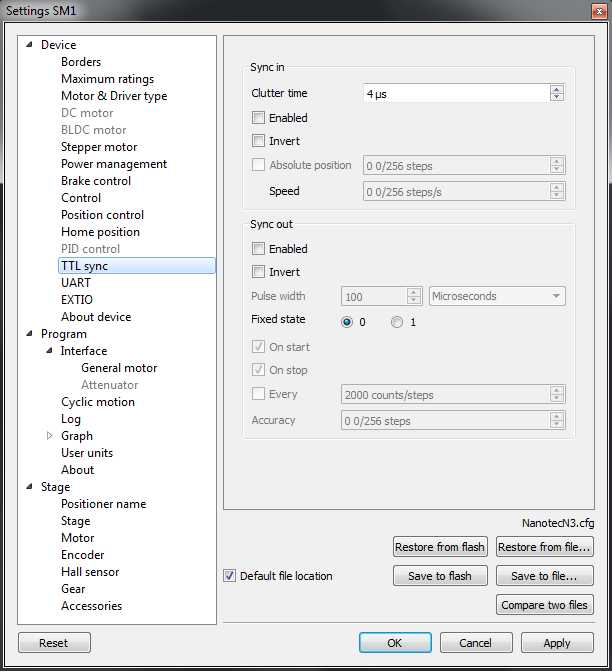5.3.6. Synchronization settings¶
In the Application settings Device -> TTL sync

Synchronization settings window
Synchronization is described in details in TTL synchronization section.
Sync in:
- Clutter time - setting minimum synchronization pulse duration (in microseconds). Defines the minimum duration, which can be detected (anti-chatter).
- Enabled - check this box for the sync in mode enable.
- Invert - checked flag shows that the operation is triggered by the falling sync pulse edge.
- Absolute position - if the flag is checked, upon sync pulse the stage moves into the absolute position specified in the field Step/Micro step. If the flag is unchecked, the shift is relative to the defined destination position.
- Speed - the speed to use when moving.
Sync out:
- The Synchronization Output can be used as a “General purpose Output signal”.
- Enabled - if the flag is checked, the sync output functions according to the next settings. If the flag is unchecked, the output value is fixed and equal to the Fixed state.
- Invert - if the flag is checked the zero logic level is set to active.
- Pulse width - specifies the duration of the output signal in milliseconds or steps/encoder pulses.
- Fixed state - sets the logic level of output to 0 or 1, respectively.
- On start - synchronizing pulse is generated at the beginning of movement.
- On stop - synchronizing pulse is generated at the end of movement.
- Every - synchronizing pulse is generated every n encoder pulses.
- Accuracy - distance to the target position. As soon as the distance to target on approach is less than or equal to this distance a synchronizing pulse will be generated if “on stop” option is used.